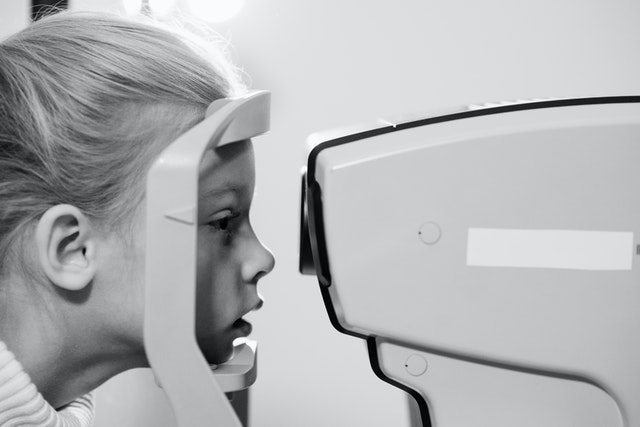A Clear Vision of Nutritional Impact
Your diet has an important impact on many aspects of your health, and your eyes are no different. Embrace the knowledge that what you eat plays a crucial role in maintaining eye health and optimizing your vision. With the right nutrients, you can protect your eyes from potential damage and promote long-term ocular wellness.
Antioxidants – The Guardians of Your Eyes
Antioxidants act as mighty guardians, protecting your eyes from harmful free radicals. Vitamins C and E, beta-carotene, and lutein/zeaxanthin are the superhero nutrients that fend off age-related eye diseases like age-related macular degeneration (AMD) and cataracts. Embrace a diet rich in citrus fruits, berries, leafy green vegetables, carrots, and nuts to harness the power of these eye-loving antioxidants.
Omega-3 Fatty Acids – A Sight to Behold
Omega-3 fatty acids, docosahexaenoic acid (DHA), are essential for retinal health. The retina, that light-sensitive tissue at the back of your eye, thrives on these beneficial fats found in fatty fish (salmon, mackerel, sardines), flaxseeds, chia seeds, and walnuts. Say hello to reduced risks of AMD and dry eye syndrome with the help of these eye-nourishing nutrients.
Vitamins and Minerals – The Building Blocks of Vision
Picture your eyes as masterpieces in the making, with vitamins and minerals as their essential building blocks. Vitamin A takes center stage, producing the crucial pigment rhodopsin, necessary for low-light vision. Feast on liver, sweet potatoes, carrots, and spinach to ensure your eyes have an abundant supply of this vital vitamin. Don’t forget about zinc and selenium; they play supporting roles in maintaining your vision health. You can find zinc in meat, shellfish, legumes, and seeds. Transitioning to selenium, it awaits in Brazil nuts, seafood, and whole grains.
Stabilize Your Vision with Blood Sugar Regulation
Imagine a world where your blood sugar levels dance to a steady beat, protecting your eyes from harm. High blood sugar levels can damage the delicate blood vessels in your eyes, leading to diabetic retinopathy. Maintain harmony by choosing low-glycemic index foods like whole grains, legumes, vegetables, and lean proteins. This dietary symphony will help stabilize your blood sugar levels, reducing the risk of diabetic eye complications.
Your Ideal Vision Weight – Achieving Balance
Furthermore, embrace a balanced diet that not only nourishes your body but also keeps your weight in check. Step into a world of optimal health and wellness with this harmonious approach to eating. Obesity is linked to an increased risk of eye conditions like AMD, cataracts, and glaucoma. A healthy weight is your ally, protecting your eyes as you maintain an active lifestyle and savor the goodness of a well-rounded diet.
A Harmonious Ensemble for Eye Health
Embrace the fact that diet is an essential part of your eye health ensemble, but it isn’t the only player. Regular eye exams conducted by eye care professionals form the cornerstone of maintaining optimal vision health. Additionally, adopting an overall healthy lifestyle, including regular exercise and stress management, will further fortify your eyes’ vitality.
In conclusion, the connection between diet and eye health is a symphony of nourishment and protection. By adding antioxidants, omega-3 fatty acids, vitamins, minerals, and maintaining balanced blood sugar and weight, you can nurture your eyes and support their long-term well-being. Remember, your vision is a precious gift, and with the right diet and lifestyle choices, you can set the stage for a lifetime of clear, vibrant, and optimistic sight.
If you are uncertain about anything regarding your eye health, be sure to visit an Optometrist to get all your questions answered. You can make an appointment with us online at https://sightcareoptometry.com/.
Note: This posting is for informational purposes only and does not attempt to diagnose or
recommend treatment for any condition. Please refer to the Ontario Association Optometrists website (https://optom.on.ca/eye-health-library) for more information or consult an Optometrist if you are experiencing eyesight issues.






